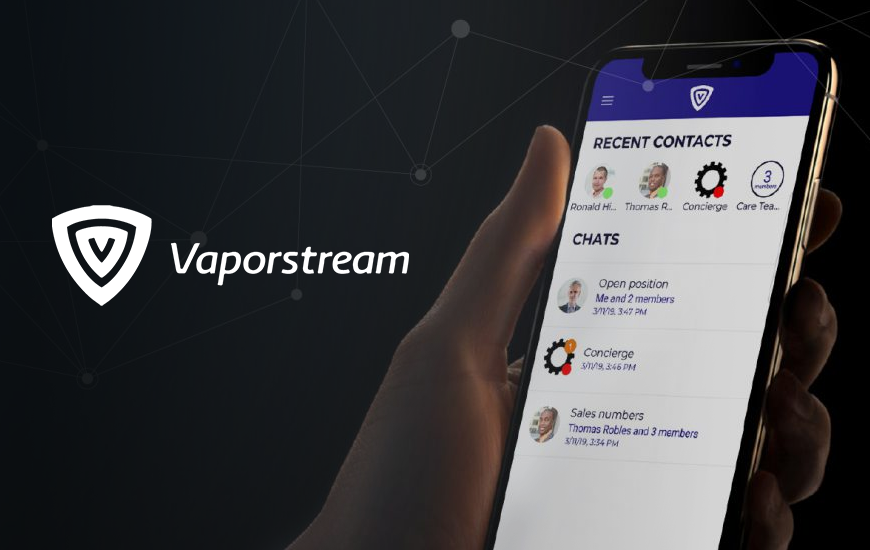Many industries deal in sensitive data which can only be processed via private apps abiding regulations created by governing bodies. But do private apps care what regulations have to say?

Employees often use their smartphones in the workplace. A good example is doctors and nurses who use ephemeral or ‘disappearing’ messaging apps to conveniently communicate with colleagues and to send or receive information about their patients. It has been reported that four out of every five healthcare professionals use personal mobile devices for work.
Professionals become vulnerable to data loss or exploitation at the hand of cyberattacks and ransomware incidents, when they use personal devices at work, or when their smartphone is stolen or lost.
They may also be violating legal safeguards meant to shield protected health information (PHI). The most common apps are often contrary to the rules imposed by the Health Insurance Portability and Accountability Act (HIPAA), California Consumer Privacy Act (CCPA) and other mandates.
Vaporstream is a business messaging app that was designed to help organizations meet various legal obligations, and also keep information private and protected. Users can ‘vaporize’ conversations which will remove any trace of data from their devices. The system also safely retains the pertinent information in its internal repositories for accountability when regulators come knocking.
“Mobile messaging applications might offer compliance capabilities but at the cost of privacy controls. Others may compromise security. Vaporstream exists at the unique nexus of privacy, security, compliance and usability,”
- said Galina Datskovsky, PhD, Chief Executive of Vaporstream
Datskovsky suggests that the Vaporstream messaging system also has other uses in healthcare settings. The recent additions to their services are compliant mobile scanning and automated document transmission capabilities.
She explained,
“One of our nursing staffing agencies used to spend hours either transcribing handwritten notes to send to the office or spend time and money hand-delivering those notes to the office. With Vaporstream, they now scan and transmit documents from their devices to the office in a matter of seconds, which in turn expedites their billing processes.”
A palliative care organization in Hawaii used Vaporstream to communicate when the island was hit by volcanic eruptions and a hurricane. Datskovsky said they still use it to share patient information, set care schedules, and perform coronavirus screenings.
Healthcare professionals are not the only ones using Vaporstream. “We serve primarily healthcare and energy, but also higher education, public safety and corporate markets. We give them private ways to accomplish tasks better, faster, cheaper,” said Datskovsky.
Nuclear energy plants use it to cut emergency and other event notification times nearly in half. Educational institutions use the encryption and privacy features of Vaporstream to transmit confidential information and coordinate public health responses in real-time. Human resources departments use their secure document transmission features to help them process payroll.
Datskovsky attributes her company’s success in part to expertise in different industries, and an understanding of how workflows change with each implementation. The system was created by experts who come from the governance and compliance side of technology. The app itself has a modern, up-to-date, consumer-like look and feel, but with all the built-in content controls.
“It’s a different world than that of social and consumer apps, where the focus is on maximizing clicks and monetization. We know what it takes to build and innovate solutions to meet complicated compliance requirements.”
Vaporstream is certified by independent mobile security experts NowSecure. This is an assurance that ‘privacy by design’ and security are baked into the product.
Datskovsky said companies should be wary if a product is not backed up by this type of security certification.
“An impartial third-party assessment is the only way to double-check and triple-check your offerings.”
She takes pride in the team she has assembled. The company employs developers from all over the world, but they are most proud to have an entirely American-made product. “All of our development and testing is done in Chicago, we don’t outsource, and we never offshore,” said Vaporstream’s chief executive.
Datskovsky sees opportunities to do more and has been expanding Vaporstream to offer more features than it offers now.
“We’ll release a secure, private and compliant conference calling next year. We’ll also continue to work very closely with our partners in nuclear energy to bring them new and more comprehensive energy solutions, including Emergency Response Organization (ERO) activation and notification processes”
Vaporstream has identified and served a niche market which is rooted deeper than any other infrastructural systems of society. By catering to the needs of industries who are dependent on data security in its entirety, they are playing a crucial role in the development of legal and safe digital systems. Keeping various norms and legal issues into consideration, they are set to create solutions which ensure utmost security to various vital industries like healthcare, education and nuclear energy and meet the norms required to deal with such sensitive information. It is evident that with time, more and more businesses will identify the intricacies of compliance and need of apps which follow security protocols described by governing bodies.

